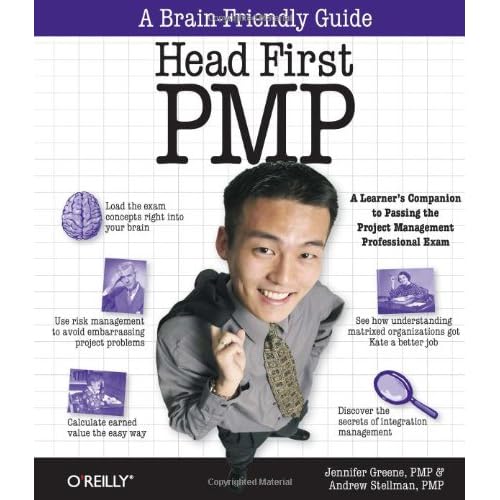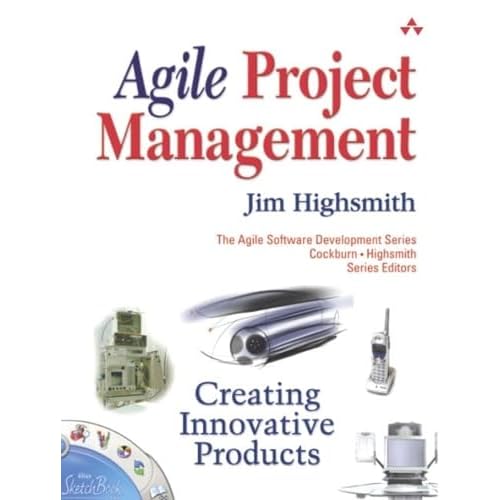





 , or a rehash of practices already contained in the PMBOK? Is APM compatible with the PMBOK, or not? Is traditional PM training based on the PMBOK useful for those pursuing APM?
, or a rehash of practices already contained in the PMBOK? Is APM compatible with the PMBOK, or not? Is traditional PM training based on the PMBOK useful for those pursuing APM?
 ?
?SCJP, SCJD, SCWCD, SCBCD




The soul is dyed the color of its thoughts. Think only on those things that are in line with your principles and can bear the light of day. The content of your character is your choice. Day by day, what you do is who you become. Your integrity is your destiny - it is the light that guides your way. - Heraclitus




 .
.SCJP, SCJD, SCWCD, SCBCD




[OCP 17 book] | [OCP 11 book] | [OCA 8 book] [OCP 8 book] [Practice tests book] [Blog] [JavaRanch FAQ] [How To Ask Questions] [Book Promos]
Other Certs: SCEA Part 1, Part 2 & 3, Core Spring 3, TOGAF part 1 and part 2







Originally posted by Darya Akbari:
There must be two different types of project managers otherwise we wouldn't have these two Project Management practices.
Personally I think that former developers (who became project managers) tend more for APM while others tend to PMBOK.
In the first case (former developer project managers) we maybe see no such mismatch between developers and managers.
But what about managers that were not developers before? Do they care more about APM or PMBOK?
The whole issue is adding more to my confusion about all these different Agile methodologies.
The soul is dyed the color of its thoughts. Think only on those things that are in line with your principles and can bear the light of day. The content of your character is your choice. Day by day, what you do is who you become. Your integrity is your destiny - it is the light that guides your way. - Heraclitus




Originally posted by Jeanne Boyarsky:
I don't see the contradiction.
SCJP, SCJD, SCWCD, SCBCD




Originally posted by Ilja Preuss:
What confusion about the Agile methodologies do you have?
 . When you try to answer them first you maybe can feel what I feel :roll: .
. When you try to answer them first you maybe can feel what I feel :roll: .SCJP, SCJD, SCWCD, SCBCD





Originally posted by Darya Akbari:
Agile with all its processes is confusing. One does not know exactly which one to follow.
In Agile you would have APM for Scrum, APM for XP, APM for whatever ...
What about the PMBOK knowledge areas:
Integration Scope Management Time Management Cost Management Quality Management HR Management Communication Risk Management Procurement
Does APM cover them?
In case it does, then there is a mismatch because we actually have these two mindsets of APM and PMBOK.
What about the questions I put forward at the begin of this thread
. When you try to answer them first you maybe can feel what I feel :roll: .
The soul is dyed the color of its thoughts. Think only on those things that are in line with your principles and can bear the light of day. The content of your character is your choice. Day by day, what you do is who you become. Your integrity is your destiny - it is the light that guides your way. - Heraclitus




[OCP 17 book] | [OCP 11 book] | [OCA 8 book] [OCP 8 book] [Practice tests book] [Blog] [JavaRanch FAQ] [How To Ask Questions] [Book Promos]
Other Certs: SCEA Part 1, Part 2 & 3, Core Spring 3, TOGAF part 1 and part 2







SCJP, SCJD, SCWCD, SCBCD





Originally posted by Jeanne Boyarsky:
See this presentation for a mapping between agile practices and the PMI's recommendations in the PMBOK.
The soul is dyed the color of its thoughts. Think only on those things that are in line with your principles and can bear the light of day. The content of your character is your choice. Day by day, what you do is who you become. Your integrity is your destiny - it is the light that guides your way. - Heraclitus




[OCP 17 book] | [OCP 11 book] | [OCA 8 book] [OCP 8 book] [Practice tests book] [Blog] [JavaRanch FAQ] [How To Ask Questions] [Book Promos]
Other Certs: SCEA Part 1, Part 2 & 3, Core Spring 3, TOGAF part 1 and part 2






Originally posted by Ilja Preuss:
Finally you won't care any longer for what exact approach you are following. You intuitively create your own Agile approach, adapted to your project and the current situation.
PJ Murray -




Originally posted by Ilja Preuss:
Regarding PMI/PMBOK, I don't know much about it - but you might be interested in this discussion: http://finance.groups.yahoo.com/group/agileprojectmanagement/message/5956?threaded=1&var=1&l=1
 .
.
 .
.SCJP, SCJD, SCWCD, SCBCD




 ).
). SCJP, SCJD, SCWCD, SCBCD





SCJP, SCJD, SCWCD, SCBCD





SCJP, SCJD, SCWCD, SCBCD




Andrew Stellman
Author of Head First Agile, Learning Agile, Beautiful Teams, Head First C#, Head First PMP, and Applied Software Project Management (O'Reilly)





Originally posted by Andrew Stellman:
(It also wants us to make sure that we know how much the change is going to impact the project, and that everyone involved agrees that the cost of making the change is worth the benefit... which is definitely a good idea too.)
The soul is dyed the color of its thoughts. Think only on those things that are in line with your principles and can bear the light of day. The content of your character is your choice. Day by day, what you do is who you become. Your integrity is your destiny - it is the light that guides your way. - Heraclitus




 ,
,SCJP, SCJD, SCWCD, SCBCD

|
Tomorrow is the first day of the new metric calendar. Comfort me tiny ad:
a bit of art, as a gift, the permaculture playing cards
https://gardener-gift.com
|

